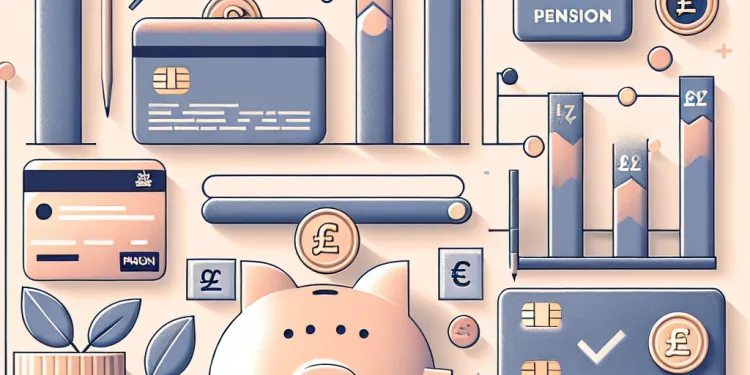
Find Help
More Items From Ergsy search
-
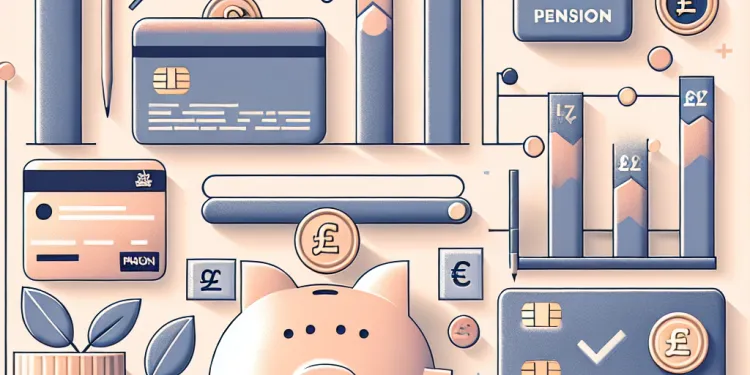
What is a defined contribution pension scheme?
Relevance: 100%
-

What is a defined benefit pension scheme?
Relevance: 85%
-

Are defined contribution pensions protected if the provider goes bust?
Relevance: 78%
-

Do firefighters have to contribute to their pension schemes?
Relevance: 75%
-

Do all UK firefighters automatically join a pension scheme?
Relevance: 53%
-

How is the pension calculated for firefighter schemes?
Relevance: 52%
-

Does the 2015 scheme have the same benefits as the earlier firefighter pension schemes?
Relevance: 52%
-
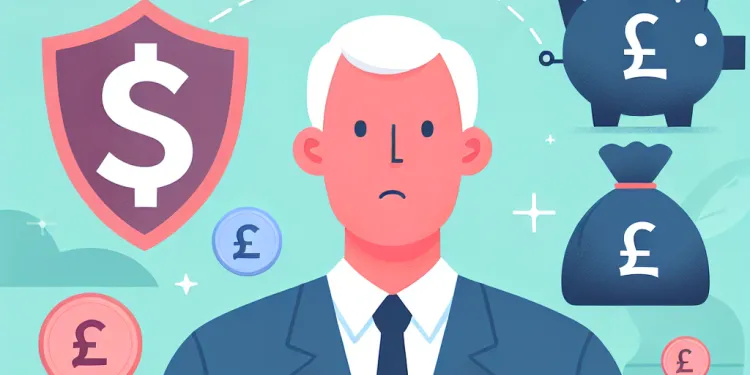
What is the Pension Protection Fund?
Relevance: 50%
-

5 Ways You Can Contribute More To Your NHS Pension!
Relevance: 50%
-
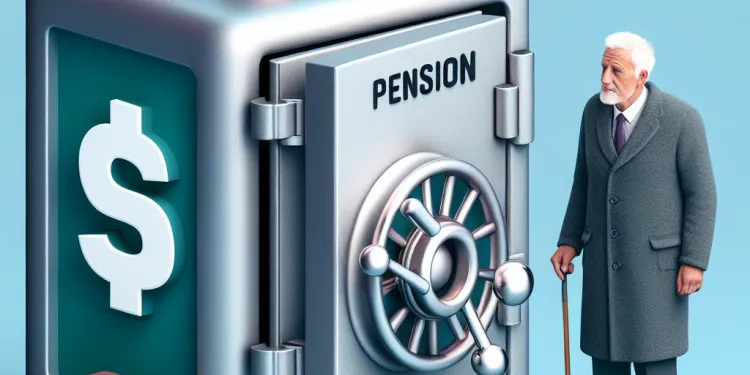
Can pensioners lose all their money if a pension provider fails?
Relevance: 50%
-
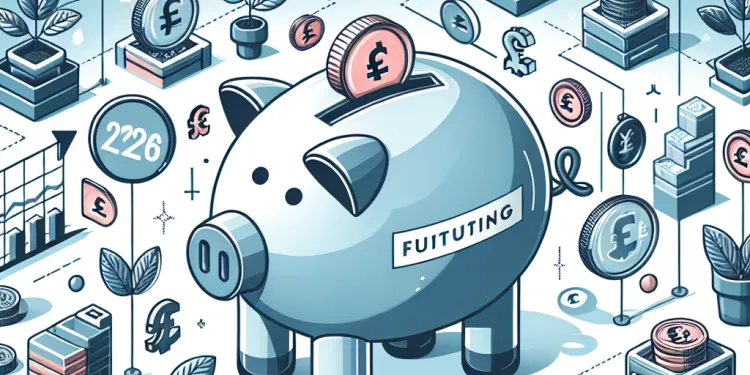
Will pension contribution allowances be affected in 2026?
Relevance: 50%
-

What Happens When Pensions Go Bust! | Pension System Collapse UK
Relevance: 49%
-

Can pension scheme members influence how their pension is managed?
Relevance: 49%
-

Pension rights for Firefighters in the UK
Relevance: 48%
-
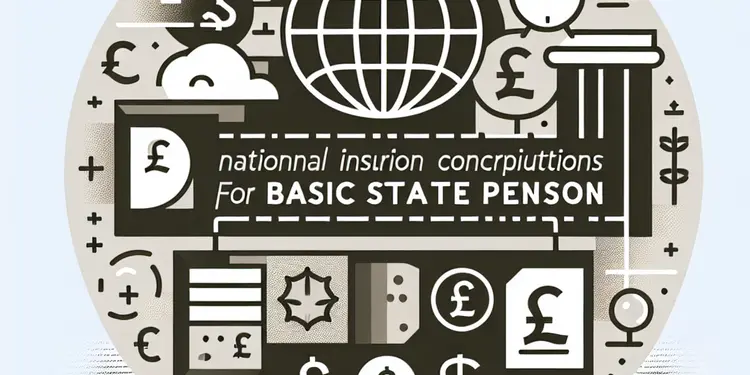
How many National Insurance contributions do I need for the basic State Pension?
Relevance: 45%
-

How does insolvency impact pension funds?
Relevance: 42%
-

Is the Pension Wise service reliable for pension advice?
Relevance: 40%
-

Police Pension Explained
Relevance: 40%
-

What options are available for flexibly accessing firefighter pension benefits?
Relevance: 39%
-

NHS Pensions | All you need to know
Relevance: 39%
-

Are the pension rights different for firefighters who joined before 2006?
Relevance: 39%
-

Who is eligible for compensation from the PPF?
Relevance: 38%
-

Answering NHS Pension Questions | Opting-Out | How to Claim | Moving Abroad etc.
Relevance: 38%
-

Is there a pension scheme for retained (part-time) firefighters in the UK?
Relevance: 38%
-

Is it possible to buy additional pension benefits as a firefighter?
Relevance: 37%
-
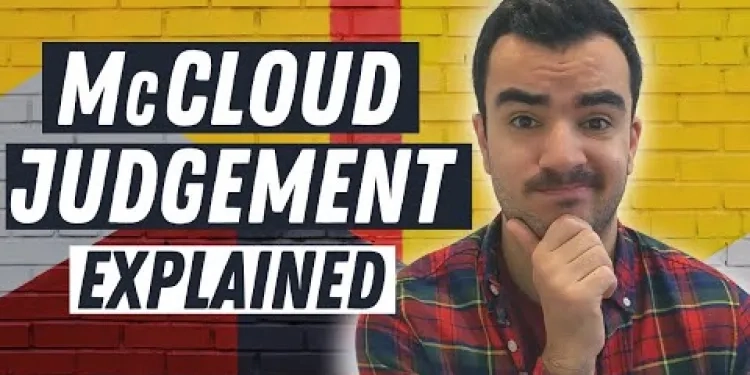
Public Sector Pension Changes | McCloud Judgement | NHS Pensions etc.
Relevance: 37%
-

What is the normal pension age for firefighters in the UK?
Relevance: 36%
-

Can my employer provide pension advice?
Relevance: 36%
-

Can I get pension advice directly from pension fund providers?
Relevance: 35%
-

Who is eligible for the NHS Low Income Scheme?
Relevance: 35%
-

What is the NHS Low Income Scheme?
Relevance: 34%
-

NHS Pension - Total Rewards Statement Explained
Relevance: 34%
-
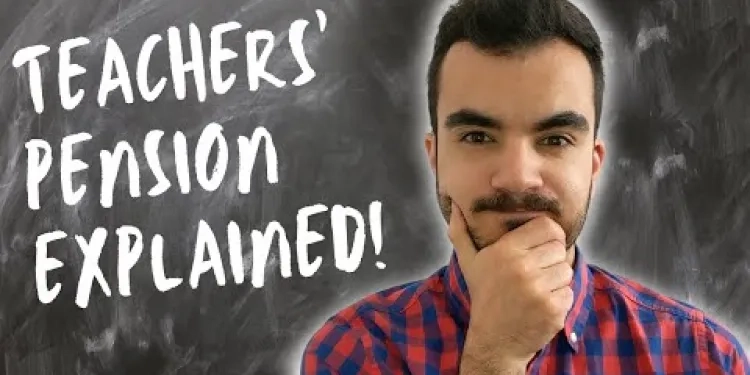
Teachers Pension Explained | All you need to know | Final Salary & Career Average Earnings
Relevance: 34%
-

NHS Pensions | How to Claim? | Ill Health, Active & Deferred Members
Relevance: 33%
-

Can firefighter pension benefits be divided in a divorce?
Relevance: 33%
-

Is there a difference between the basic State Pension and the new State Pension?
Relevance: 33%
-

Are firefighter pension benefits adjusted for inflation?
Relevance: 33%
-

What is the NHS Low Income Scheme?
Relevance: 32%
-

How does leaving the fire service before pension age affect my benefits?
Relevance: 32%
-

What is the basic pension in the UK?
Relevance: 32%
Overview of a Defined Contribution Pension Scheme
A defined contribution pension scheme is a type of retirement plan where an employee, and often their employer, contribute a set amount or percentage of the employee's earnings into a pension fund. The final pension amount accrued depends on the contributions made and the investment performance of these contributions. This is in contrast with defined benefit schemes, where the pension is calculated based on salary and years of service.
How It Works
In a defined contribution pension scheme, contributions are typically invested in various assets such as stocks, bonds, and mutual funds, which are managed by financial professionals. Employees may have the option to choose from a range of investment funds that align with their risk profile and retirement planning. As the money is invested over time, the value of the pension pot will fluctuate based on market conditions and the performance of the chosen investments.
Contributions
Contributions to these pension schemes can be made by both employees and employers. In the UK, there is a minimum contribution level set by the government under auto-enrolment rules, which requires eligible employees and their employers to contribute a combined minimum of 8% of qualifying earnings, with a minimum of 3% coming from the employer, into the pension scheme.
Accessing the Pension
Upon reaching the minimum pension age, which is typically 55 in the UK (rising to 57 in 2028), individuals can begin accessing their pension savings. At retirement, individuals have several options, including withdrawing a tax-free lump sum, purchasing an annuity to provide a regular income, or opting for a flexible drawdown, where funds can be withdrawn as needed. The choice will depend on personal circumstances and retirement goals.
Advantages and Disadvantages
One of the main advantages of a defined contribution scheme is flexibility. Individuals have control over their investment choices and how they access their pension savings. However, the primary risk is that the final pension pot and retirement income are not guaranteed and depend on variables such as investment performance and market conditions. This contrasts with defined benefit schemes, where the retirement income is predetermined.
Conclusion
Defined contribution pension schemes offer a way for individuals to save for retirement with potential contributions from employers and tax advantages from the government. However, it requires individuals to be more proactive in managing their investments and planning for their financial future. Understanding how these schemes work and making informed investment choices can help in building a sufficient retirement fund.
What is a Defined Contribution Pension?
A defined contribution pension is a way to save money for when you stop working. You and your boss put money into a special savings account. How much money you get in the end depends on how much you both put in and how well the money is invested. This is different from another kind where you get a set amount based on your pay and how long you worked.
How Does It Work?
With this pension, the money you save is put into things like stocks or bonds to grow over time. You might get to choose how your money is invested. The amount you have can go up or down, depending on how the investments do over time.
Putting Money In
Both you and your employer add money to this pension. In the UK, there's a rule that the total must be at least 8% of your earnings. Your employer has to put in at least 3% of that.
Taking Money Out
When you reach a certain age, like 55 in the UK (going to 57 in 2028), you can start using your pension money. You can take some out without paying tax, get regular money every month, or take it out whenever you need. You can choose what works best for you.
Good and Bad Points
The good thing about this kind of pension is you can choose how to invest your money and use it later. The hard part is, it depends on how well your investments do, so you might get less money than you hoped. This is different from pensions that give you a set amount when you retire.
In Summary
Defined contribution pensions help you save for the future. Sometimes your employer and the government help too. But you have to pay attention to how your savings grow and make good choices about your investments to have enough when you retire.
Frequently Asked Questions
What is a defined contribution pension scheme?
A defined contribution pension scheme is a retirement plan where the contributions are defined and fixed, often a percentage of salary, but the retirement benefits are uncertain and depend on investment returns.
How do contributions work in a defined contribution pension scheme?
Contributions are typically made by both the employer and the employee into an individual account, which is then invested to build retirement savings.
How are the funds in a defined contribution pension scheme invested?
The funds are usually invested in a variety of options like stocks, bonds, and mutual funds, depending on the plan’s offerings and the individual's choices.
What determines the value of a defined contribution pension at retirement?
The value is determined by the total contributions made and the investment performance over time.
Can I choose how my contributions are invested in a defined contribution pension?
Yes, many plans allow individuals to choose how to allocate their contributions among various investment options offered by the plan.
What happens if my investment choices perform poorly?
Since the retirement benefit is not guaranteed, poor investment performance can lead to a lower retirement income.
Are there tax benefits associated with a defined contribution pension scheme?
Yes, contributions are typically made pre-tax, and the funds grow tax-deferred until withdrawal in retirement.
What is the difference between a defined contribution and a defined benefit pension scheme?
In a defined benefit scheme, retirement benefits are predetermined and guaranteed, while in a defined contribution scheme, benefits are based on investment performance.
At what age can I access my defined contribution pension?
Access typically begins at retirement age, which can vary, but many plans allow withdrawals, often with penalties, starting at age 59½ in the US.
Can I contribute to my defined contribution pension scheme if I switch jobs?
Yes, often you can roll over existing funds into a new employer's plan or into an individual retirement account (IRA).
What happens to my defined contribution pension if I leave my job?
You can usually keep the money in your former employer’s plan, roll it over to a new plan, or withdraw it, although withdrawals may incur taxes and penalties.
Is it possible to increase my contributions to the pension scheme?
Yes, many plans allow you to adjust your contribution rate, though there may be annual limits.
Do employers match contributions in defined contribution pension schemes?
Some employers offer matching contributions up to a certain percentage of your salary, incentivizing higher personal contributions.
How is the pension accessed upon retirement?
Many plans offer options like a lump-sum payment, annuities, or periodic withdrawals.
Are my beneficiaries entitled to my pension if I pass away?
Yes, beneficiaries can typically receive the remaining balance of your pension account if you pass away before exhausting it.
What fees are associated with defined contribution pension plans?
Plans may charge administrative fees, investment fees, and sometimes fees for additional services.
Can defined contribution pension plans lose value?
Yes, since the funds are invested, their value can fluctuate with market conditions, potentially decreasing.
Is participation in a defined contribution pension plan mandatory?
Participation is typically not mandatory, but it is often highly encouraged, and some employers may automatically enroll employees.
Can I manage my defined contribution pension online?
Many plans offer online platforms where you can manage your investments, track performance, and make contribution changes.
What are the withdrawal rules for a defined contribution pension?
Withdrawal rules vary by country, but generally include age restrictions and possible penalties for early withdrawal.
What is a defined contribution pension scheme?
A defined contribution pension scheme is a way to save money for when you get older and stop working. You and your employer put money into a special savings account each month. This saved money is used to give you money in the future.
Think of it like a piggy bank. You put money in it little by little, so when you need it later, you will have a big amount saved up.
Helpful tools: You can use a calculator to see how much money you might save over time. Talking to a trusted adult, like a parent or a teacher, can also help you understand more.
A defined contribution pension scheme is a plan for when you stop working. You pay in a set amount of money, usually a part of your salary. How much money you get when you retire can change because it depends on how well your investments do.
How do payments work in a defined contribution pension plan?
A defined contribution pension plan is a way to save money for when you stop working.
Here's how it works:
- You put money into the plan. This money is called a "contribution."
- Your boss might add money to the plan too.
- This money goes into a special account for you.
- The money in the account can grow over time.
- When you stop working, you can use the saved money.
To understand your pension better, you can:
- Ask someone who knows about money to explain it.
- Use easy language and pictures to help you learn.
- Look for videos or apps that make it simple.
Both you and your boss put money into a special account. This money is then used to save up for when you stop working.
How is the money in a pension plan used?
The money is put into different things. It can go into shares of companies, loans to companies or governments, or savings groups. It depends on what the plan offers and what the person picks.
What makes my pension money grow by the time I retire?
The value is found by adding all the money put in and how well the money grows over time.
Can I decide where my money goes in a defined contribution pension?
In a defined contribution pension, you put money in for your future. You might be able to choose where this money is invested.
Here’s how you can learn more and decide:
- Ask for help from a parent, teacher, or trusted friend.
- Use a computer or tablet to find pictures or videos about pensions.
- Look for simple guides or books about saving money for the future.
Yes, you can choose where to put your money in some plans. There are different ways to invest your money.
What if my investment does not do well?
When you stop working, your retirement money is not promised. If the places you put your money do not do well, you might have less money after you retire.
Do you get tax benefits with a defined contribution pension plan?
You might save money on taxes with a defined contribution pension plan. This means you could pay less tax because of the money you put into your pension.
Here are some tips to help you understand better:
- Use pictures or drawings. They can help you see what a pension is.
- Ask someone you trust to explain it to you in simple words.
Yes, the money you put in usually comes from your pay before taxes. It grows without taxes until you take it out when you retire.
If you're having trouble understanding, try using pictures or ask someone for help. You can also listen to the text using a tool that reads it out loud.
How are defined contribution and defined benefit pensions different?
A pension is money for when you stop working.
Defined Contribution Pension
You and your boss put money into your pension. This money grows over time. When you stop working, you use this money for your needs. The amount you will have depends on how much money you put in and how well the money grows.
Defined Benefit Pension
This pension gives you a fixed amount of money every month when you stop working. The amount is based on your salary and how long you worked for your boss. You know how much you get every month.
Tools to Help Understand:
- Use pictures or charts to show how each pension works.
- Ask someone to explain it with simple words.
- Use online videos that explain pensions simply.
There are two types of pension plans.
The first type is where you know how much money you will get when you stop working. This is called a "defined benefit plan." They are safe because you are certain about your future money.
The second type depends on how well your money is invested. This one is called a "defined contribution plan." Your money might grow or get smaller depending on how the investments do.
Helpful tools like images or simple charts can explain this better. Some people also like using audio books or reading with a friend for support.
When can I use my pension money?
You can start using your pension money at age 55. This age might change in the future, so it's a good idea to check.
If reading is hard, you can ask someone to read this for you or use a text-to-speech tool.
You can usually start getting your money when you stop working because of old age. This is different for everyone. Many plans let you take out money when you are 59 and a half years old in the US. But be careful, there might be extra costs if you take out money early.
Can I still add money to my pension if I get a new job?
Yes, you can usually move your money to a new boss's plan or into your own savings account for retirement.
What happens to my pension if I leave my job?
If you stop working at your job, you still keep the money in your pension. A pension is like a special savings account for when you get old.
Here are some things you can do:
- Leave your money in the same pension fund.
- Move your money to a new pension fund if you start a new job.
It is a good idea to talk to someone who knows about pensions. They can help you make the best choice.
You can also use tools like simple charts or pictures to understand better. Asking a family member or friend to explain can also help.
You can do a few things with the money from your old job:
- Keep it in your old job's plan.
- Move it to a new plan.
- Take the money out, but you might have to pay extra money to the government if you do this.
Can I add more money to my pension savings?
Do you want to save more for the future? You can add extra money to your pension. Ask your boss or the pension office how to do this. They will help you.
Remember, saving now can give you more money later!
For help, you can use tools like a calculator to see how much you can save. Or, talk to a friendly adult who knows about pensions.
Yes, you can usually change how much money you put in, but there may be limits each year.
Do bosses add money to your pension savings?
When you save money for your future in a pension plan, your boss might help by adding more money to it. This is like a bonus for saving your money.
If you are not sure about how much your boss is adding, it is a good idea to ask them or check with the person in charge of your pension plan.
You can also use tools like money calculators or talk to someone who knows about pensions for help.
Some jobs give extra money to your savings if you put in some of your pay. They do this to encourage you to save more money from your pay.
How do I get my pension when I stop working?
There are different ways to take your money from a plan. You can choose to get all your money at once, get regular payments over time, or take out money when you need it.
Can the people I choose get my pension money if I die?
If you die and still have money in your pension account, the people you choose (your beneficiaries) can usually get the rest of the money.
What fees do you have to pay for a defined contribution pension plan?
Plans can ask you to pay different fees. These fees can be for administration, investment, or extra services.
Can money in a pension plan go down?
Yes, because the money is put into investments, its value can go up and down. This means sometimes it could be worth less.
Do I have to join a pension plan?
Joining in is usually not something you have to do, but it is often a good thing to do. Some bosses might sign you up without asking.
Can I look after my pension money online?
You can use the internet to check your pension money if you have a "defined contribution pension." This means you can see how much money you have saved for when you stop working. You can also make changes if needed.
Here are some tools that can help you:
- Use a bookmarked website or app to check your pension.
- Ask someone you trust to help you if you find it hard.
- Use a calculator to see how much money you might have in the future.
Many plans let you use websites where you can take care of your money, see how your money is doing, and change how much money you put in.
How do you take money out of a defined contribution pension?
The rules for taking out money can be different in each country. But usually, you have to be a certain age. If you take money out too early, there might be a penalty or fee.
Useful Links
This website offers general information and is not a substitute for professional advice.
Always seek guidance from qualified professionals.
If you have any medical concerns or need urgent help, contact a healthcare professional or emergency services immediately.
Some of this content was generated with AI assistance. We’ve done our best to keep it accurate, helpful, and human-friendly.
- Ergsy carfully checks the information in the videos we provide here.
- Videos shown by Youtube after a video has completed, have NOT been reviewed by ERGSY.
- To view, click the arrow in centre of video.
- Most of the videos you find here will have subtitles and/or closed captions available.
- You may need to turn these on, and choose your preferred language.
- Go to the video you'd like to watch.
- If closed captions (CC) are available, settings will be visible on the bottom right of the video player.
- To turn on Captions, click settings .
- To turn off Captions, click settings again.
More Items From Ergsy search
-

What is a defined contribution pension scheme?
Relevance: 100%
-

What is a defined benefit pension scheme?
Relevance: 85%
-

Are defined contribution pensions protected if the provider goes bust?
Relevance: 78%
-

Do firefighters have to contribute to their pension schemes?
Relevance: 75%
-

Do all UK firefighters automatically join a pension scheme?
Relevance: 53%
-

How is the pension calculated for firefighter schemes?
Relevance: 52%
-

Does the 2015 scheme have the same benefits as the earlier firefighter pension schemes?
Relevance: 52%
-

What is the Pension Protection Fund?
Relevance: 50%
-

5 Ways You Can Contribute More To Your NHS Pension!
Relevance: 50%
-

Can pensioners lose all their money if a pension provider fails?
Relevance: 50%
-

Will pension contribution allowances be affected in 2026?
Relevance: 50%
-

What Happens When Pensions Go Bust! | Pension System Collapse UK
Relevance: 49%
-

Can pension scheme members influence how their pension is managed?
Relevance: 49%
-

Pension rights for Firefighters in the UK
Relevance: 48%
-

How many National Insurance contributions do I need for the basic State Pension?
Relevance: 45%
-

How does insolvency impact pension funds?
Relevance: 42%
-

Is the Pension Wise service reliable for pension advice?
Relevance: 40%
-

Police Pension Explained
Relevance: 40%
-

What options are available for flexibly accessing firefighter pension benefits?
Relevance: 39%
-

NHS Pensions | All you need to know
Relevance: 39%
-

Are the pension rights different for firefighters who joined before 2006?
Relevance: 39%
-

Who is eligible for compensation from the PPF?
Relevance: 38%
-

Answering NHS Pension Questions | Opting-Out | How to Claim | Moving Abroad etc.
Relevance: 38%
-

Is there a pension scheme for retained (part-time) firefighters in the UK?
Relevance: 38%
-

Is it possible to buy additional pension benefits as a firefighter?
Relevance: 37%
-

Public Sector Pension Changes | McCloud Judgement | NHS Pensions etc.
Relevance: 37%
-

What is the normal pension age for firefighters in the UK?
Relevance: 36%
-

Can my employer provide pension advice?
Relevance: 36%
-

Can I get pension advice directly from pension fund providers?
Relevance: 35%
-

Who is eligible for the NHS Low Income Scheme?
Relevance: 35%
-

What is the NHS Low Income Scheme?
Relevance: 34%
-

NHS Pension - Total Rewards Statement Explained
Relevance: 34%
-

Teachers Pension Explained | All you need to know | Final Salary & Career Average Earnings
Relevance: 34%
-

NHS Pensions | How to Claim? | Ill Health, Active & Deferred Members
Relevance: 33%
-

Can firefighter pension benefits be divided in a divorce?
Relevance: 33%
-

Is there a difference between the basic State Pension and the new State Pension?
Relevance: 33%
-

Are firefighter pension benefits adjusted for inflation?
Relevance: 33%
-

What is the NHS Low Income Scheme?
Relevance: 32%
-

How does leaving the fire service before pension age affect my benefits?
Relevance: 32%
-

What is the basic pension in the UK?
Relevance: 32%


